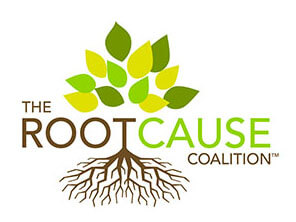SDOH Advocacy Update - 03/18/2024
SDOH Advocacy Update - 03/18/2024
The Latest Advocacy and Government Relations News
The Root Cause Coalition is dedicated to amplifying the voices of communities and driving impactful policy reforms. As a nonprofit committed to addressing the root causes of health disparities and poverty, we aim to educate our members on recent news and research that advocates for equitable healthcare access and influencing policy decisions that combat food insecurity and poverty.
Read our April 22, 2024 news on social drivers and advocacy updates below:
Social Drivers in the News:
Associations of Medical Debt with Health Status, Premature Death, and Mortality in the US
This cross-sectional study delves into the correlation between medical debt and poor population health across various counties in the United States. Analyzing data from 2,943 counties, the study reveals that a greater proportion of the population burdened by medical debt correlates with increased instances of poor physical and mental health, premature deaths and higher mortality rates at the county level. These findings underscore an association between medical debt and deteriorating population health, particularly impacting vulnerable communities already susceptible to accumulating medical expenses.
How Some Top Hospitals Cut CO2 to Cure the Health Sector's Climate Impact
This article details the efforts of top hospitals in California, Michigan and Taiwan to mitigate their carbon emissions. The health care sector stands as one of the nation’s top producers of CO2 emissions, accounting for 8.5% of total U.S. carbon emissions. Operational demands of health facilities, such as 24/7 ventilation, electricity, temperature control, food services, laundries, emergency transportation and large quantities of single-use sanitary products, leads to massive amounts of greenhouse gas emissions. Researchers and teams across the U.S. are finding strategies to minimize waste, build energy-efficient buildings, and promote sustainability awareness among hospital staff.
Join the Celebration: National Nutrition Month
March is National Nutrition Month, an annual campaign sponsored by the Academy of Nutrition and Dietetics. This year’s theme is “Beyond the Table,” addressing the farm-to-fork aspects of nutrition such as food production and distribution to navigating grocery stores and farmers markets and describing the various ways we eat whether at home, school or events. The theme also focuses on sustainability and decreasing food waste. Click here to find ways to celebrate as well as access nutrition resources and a social media toolkit.
How Reparations Could Improve Black Health and Wellbeing
This article is a conversation with Mary T. Bassett, M.D., Director of Harvard’s FXB Center for Health and Human Rights and former health commissioner for the state of New York, about the research project that she is leading, “Making the Public Health Case for Reparations,” which explores Black reparations as a public health strategy for achieving health equity. Dr. Bassett argues that the legacy of slavery, Jim Crow and “separate but equal” policies has created vast disparities in wealth and opportunity for Black people, and states that eliminating the wealth gap should be the goal of reparations. She says we should measure progress by looking at health outcomes to close the gap in life expectancy to use reparations to achieve racial equity.
SDoH Advocacy Update:
OCCHE Releases March Health Outlook
The Office of Climate Change and Health Equity (OCCHE) has released its March 2024 Climate and Health Outlook, intended to inform health professionals and the public on how our health may be affected in the coming months by climate events and provide resources to take proactive action. This edition covers each region’s forecast for drought, wildfire and winter weather as well as providing information on behavioral health impacts associated with climate hazards and how climate change is influencing pollen.
H.Res.1062 – Declaring racism a public health crisis
This resolution was introduced by Representative Jahana Hayes [D-CT] to express congressional support for addressing racism as a public health crisis. It recognizes racism as a pervasive health issue and urges immediate and effective government action to address it. The resolution commits to establishing a national strategy to address health disparities and inequity across all sectors of society, dismantling systemic practices and policies that perpetuate racism and promoting efforts to address SDoH, especially for Black, Latino, Native American people and other people of color. This bill has been referred to the Committees on Energy and Commerce and the Judiciary.
H.R.7503 – Health Equity for People with Disabilities Act
This bill was introduced by Representative Donald Payne [D-NJ] to address the health disparities faced by people with disabilities, including a lack of providers who understand their specific health needs, a lack of accessible diagnostic equipment and insufficient communication resources, such as sign language interpretation and plain language instructions. The bill would amend the Public Health Services Act to ensure that community health centers are prepared to serve the health care needs of people with disabilities within the existing medically underserved groups and medically underserved areas. It would also provide community health centers with quality improvement grants to improve staff skills and ensure settings and equipment are accessible to reduce barriers to care of people with disabilities in their clinics. The bill was referred to the House Committee on Energy and Commerce.
H.R.7481 – Improving Social Determinants of Health Act of 2024
This bill, reintroduced by Representative Nanette Diaz Barragan [D-CA], would authorize the Director of the Centers for Disease Control and Prevention (CDC) to create the Social Determinants of Health (SDoH) Program. This program would work to improve health outcomes and eliminate health disparities by coordinating SDoH activities across the CDC and improving the capacity of public health agencies to address SDoH issues. To do this, the bill would provide funding for grants that would be awarded to state, local, territorial and Tribal health agencies, nonprofit organizations and nonprofit institutions of higher education that are implementing SDoH programs in their communities. The bill was referred to the House Committee on Energy and Commerce.
